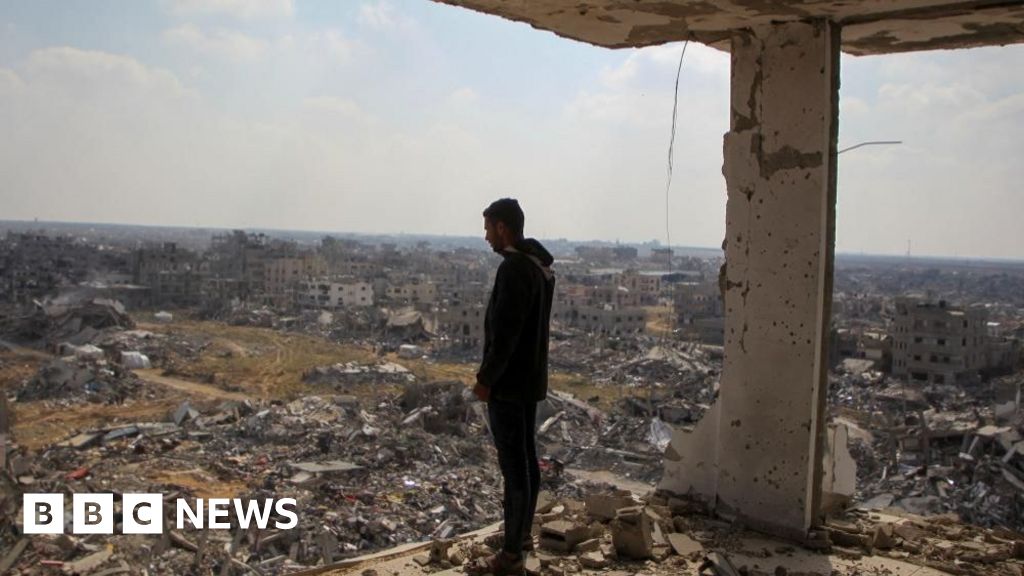 |
|
Donald Trump's recent suggestion that the United States should 'take over' and 'own' Gaza, even relocating its population, has ignited a firestorm of controversy. This audacious proposal, made amidst a fragile ceasefire between Hamas and Israel, represents a potential seismic shift in US Middle East policy. The statement’s timing, following the devastating 15-month conflict which left two-thirds of Gaza's buildings destroyed or damaged according to UN estimates, raises questions about the underlying motivations and practical implications of such a dramatic intervention. The scale of reconstruction required is immense, encompassing the removal of unexploded ordnance, repair of infrastructure, and the rebuilding of homes, schools, and hospitals. Trump’s rationale, framed in terms of efficient urban planning and economic development, suggests creating a new, prosperous 'Riviera of the Middle East' free from the existing conflict. However, this vision completely disregards the complex political, historical, and humanitarian realities at play.
The controversy surrounding Trump's proposal stems from its blatant disregard for international law and the rights of the Palestinian people. Forcibly displacing a population, even under the guise of reconstruction, would constitute a gross violation of human rights and international norms. While some Palestinians might willingly relocate, many others would be unwilling or unable to leave their homes, due to financial constraints or strong emotional ties to their ancestral land. The immense psychological trauma associated with forced displacement, especially for those whose families experienced the Nakba (the 1948 displacement of Palestinians), cannot be overstated. This proposal ignores the decades-long struggle for Palestinian self-determination and the widely recognized aspiration for a Palestinian state encompassing both Gaza and the West Bank. The idea completely undermines previous peace efforts, including Trump’s own 2020 'Vision for Peace', which, despite its flaws, at least acknowledged the need for a two-state solution.
Furthermore, the proposal has been met with fierce opposition from Arab nations and some US allies. Countries like Egypt and Jordan, who already grapple with internal challenges and refugee populations, would be disproportionately burdened by the potential influx of Gazan refugees. The response from Palestinian officials has been predictably negative, with accusations of Israeli obstructionism in hindering reconstruction efforts within Gaza. Even within Israel, reactions have been divided, with Netanyahu's right-wing supporters expressing support while more moderate voices express concern. The international community, deeply committed to the principle of self-determination and human rights, would likely condemn such a unilateral action. The sheer logistical complexity of undertaking such an operation, requiring a significant military commitment and long-term resource allocation, makes the proposal appear incredibly impractical.
The feasibility of Trump's plan is highly questionable. The United States has no legal claim to Gaza, and it is unclear how Trump envisions imposing American rule. His past pronouncements about US control over Greenland or the Panama Canal suggest his pronouncements might be strategic posturing rather than concrete plans. Current discussions about Gaza's governance include a joint Palestinian administration, international peacekeeping forces, and a temporary administration involving various international actors. While a limited US presence currently exists in Gaza in the form of private security firms, this falls far short of a full-scale takeover. Such an action would necessitate a large-scale military intervention, directly contradicting Trump's past rhetoric of avoiding entanglement in Middle Eastern conflicts. The potential impact on the existing ceasefire between Israel and Hamas is also considerable; such a drastic and provocative move could destabilize the already fragile peace and potentially lead to renewed hostilities.
Trump's statement, while shocking, is not entirely disconnected from the broader context of the Israeli-Palestinian conflict. It reflects a deeply cynical view of international diplomacy and a disregard for established norms of international law. Decades of failed peace negotiations, the ongoing humanitarian crisis in Gaza, and the deep-seated mistrust between Israelis and Palestinians have created a volatile environment ripe for such outlandish proposals. While Trump's proposal may be a strategic bargaining tactic, its very existence reveals the deep-seated problems plaguing the region. Until genuine efforts toward a comprehensive, just, and lasting peace are undertaken, such provocative statements will continue to fuel the conflict and undermine the hope of a peaceful future. Ultimately, the lack of clear details about implementation and the profound legal and ethical objections to such a proposal make Trump's suggestion extremely unlikely to materialize. However, its very existence highlights the urgent need for a more considered and respectful approach to resolving the complexities of the Israeli-Palestinian conflict.
Source: Why does Donald Trump want to take over Gaza and could he do it?
